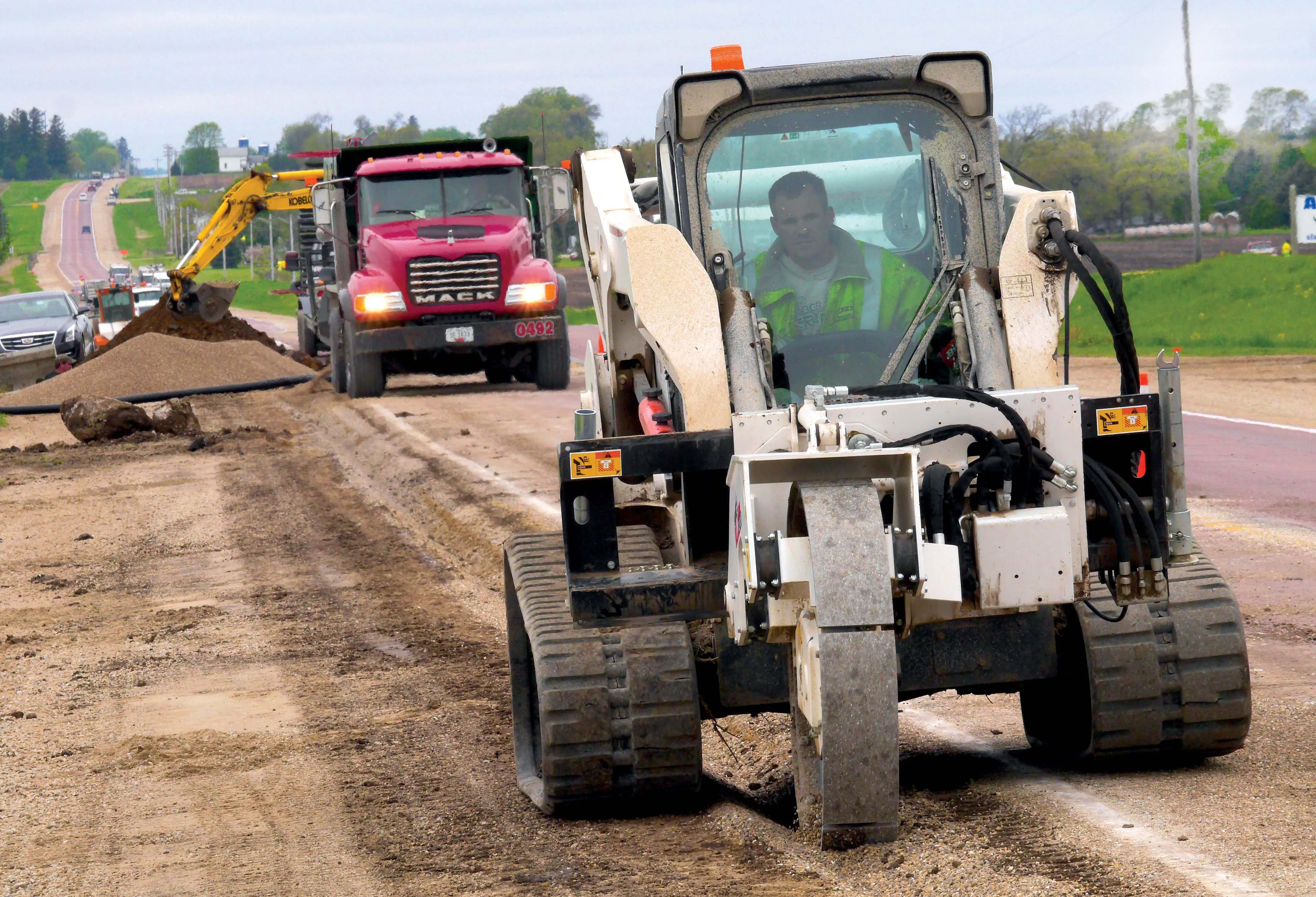In Australia local authorities are facing increasing pressure to keep roads properly maintained while cutting costs at the same time. This presents a major problem, however two local authorities have begun using a novel solution to road maintenance and repairs, based around using the latest version of Caterpillar's RM300 rotary mixer.
February 20, 2012
Read time: 3 mins
In Australia local authorities are facing increasing pressure to keep roads properly maintained while cutting costs at the same time. This presents a major problem, however two local authorities have begun using a novel solution to road maintenance and repairs, based around using the latest version of Caterpillar's RM300 rotary mixer. 2827 Longreach Regional Council in Longreach, Queensland, and 2828 Murray Shire Council at Mathoura in New South Wales are both boosting production and lowering costs following the delivery of the RM300s. Long reach has plenty of experience with the reclaimer concept, having bought an earlier 178 Caterpillar RR250B in 1998. This new RM300 offers considerable gains in performance however and was put to work soon after delivery on a road project 10km south of Longreach and was used to repair a section of road 20km in length and 5m wide.
The work required on-site mixing of the existing road base with cement to a depth of 250mm, which was then sealed. All the necessary materials were trucked in side tippers, shaped using a grader and then mixed by the reclaimer. The job was carried out in a single pass by the reclaimer and the new machine's additional power and weight over the earlier model was noted as this made pushing the supply tankers around curves somewhat easier. Compaction was then carried out using a machine with a padfoot drum first, followed by smooth drum rollers. Around eight passes were required, with the machines set on high amplitude for the first two-three and then set to low amplitude for subsequent compaction. The production rates varied depending on factors such as materials supply and the conditions of the specific location but using the RM300, the team was able to compact some 1.7km/day to a depth of 200mm. Using the reclaimer with compactors has provided major cost savings with regard to purchasing and transporting new aggregates (as well as water). According to Longreach Regional Council, the reclamation process costs around 70% of conventional road construction techniques and allows a road life of around 10 years.
Meanwhile Murray Shire is using its RM300 in a variety of applications, including rural roads, country roads and urban work. According to the customer, some jobs last days or weeks, while it is not unusual for the machine to be used at three different locations in a single working week. The jobs include working on unsealed roads for combining sand and clay; combining crushed rock and gravel; ripping up sealed roads ready for a complete rehabilitation project. The machine is also used in urban streets and run alongside kerbs and gutters, where its quiet operation has been beneficial.
The work required on-site mixing of the existing road base with cement to a depth of 250mm, which was then sealed. All the necessary materials were trucked in side tippers, shaped using a grader and then mixed by the reclaimer. The job was carried out in a single pass by the reclaimer and the new machine's additional power and weight over the earlier model was noted as this made pushing the supply tankers around curves somewhat easier. Compaction was then carried out using a machine with a padfoot drum first, followed by smooth drum rollers. Around eight passes were required, with the machines set on high amplitude for the first two-three and then set to low amplitude for subsequent compaction. The production rates varied depending on factors such as materials supply and the conditions of the specific location but using the RM300, the team was able to compact some 1.7km/day to a depth of 200mm. Using the reclaimer with compactors has provided major cost savings with regard to purchasing and transporting new aggregates (as well as water). According to Longreach Regional Council, the reclamation process costs around 70% of conventional road construction techniques and allows a road life of around 10 years.
Meanwhile Murray Shire is using its RM300 in a variety of applications, including rural roads, country roads and urban work. According to the customer, some jobs last days or weeks, while it is not unusual for the machine to be used at three different locations in a single working week. The jobs include working on unsealed roads for combining sand and clay; combining crushed rock and gravel; ripping up sealed roads ready for a complete rehabilitation project. The machine is also used in urban streets and run alongside kerbs and gutters, where its quiet operation has been beneficial.






